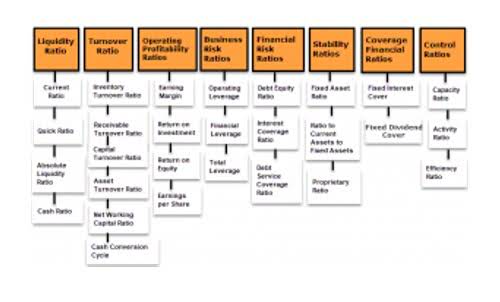
Because it involves court filings, it means that information about the disposition of your estate can also be available to the public. It is important to note that assets can still be subject to estate taxes even if they are held in a revocable trust and transferred outside of this process. When it comes to estate planning, trusts provide a multitude of benefits, such as asset protection, probate avoidance, and the assurance https://www.bookstime.com/ of a smooth transfer of wealth to your loved ones. However, even though approximately six out of ten Americans have a retirement account, only one in three adults have an estate plan, according to Caring.com’s 2023 Wills and Estate Planning Study. To protect those assets, guidance from a knowledgeable trust attorney is essential. You may be able to avoid estate taxes with certain types of trusts, called irrevocable trusts.
Asset Protection Trusts

If you’re looking for attorney billing and law practice management software in one solution, see a quick demo of Smokeball and see what it can do for your firm. Smokeball legal billing software supports IOLTA trust accounts, but attorneys must pay close attention to the rules governing the jurisdiction in which they’re working. Beyond the basic rule of depositing client funds into an attorney trust account in mandatory states, the rules can vary wildly from one jurisdiction to another. For example, some jurisdictions may require lawyers to place into an attorney trust account any portion of a flat fee that has yet to be earned.
Revocable or Irrevocable

However, a drawback is the inability to alter the trust’s terms once it has been established, limiting any potential modifications. An AB trust is similar to a living trust, but when the trust maker dies, an AB trust splits into two buckets. The property in one bucket goes directly to the beneficiaries, what is a trust request from a lawyer and property in the other bucket is set aside for use by another person before it passes on to the final beneficiaries. AB trusts are most often used as marital trusts, because they allow a surviving spouse to use a deceased spouse’s property before the property passes to the deceased spouse’s children.
The Rules For Fees Paid in Advance: You’re Better Off Safe Than Sorry
The National Law Review is a free to use, no-log in database of legal and business articles. The content and links on are intended for general information purposes only. Any legal analysis, legislative updates or other content and links should not be construed as legal or professional advice or a substitute for such advice. If you require legal or professional advice, kindly contact an attorney or other suitable professional advisor. Until the funds are considered “earned” an attorney may not under any circumstances borrow funds from an IOLTA account.

Be sure the program will prepare and/or maintain all the records required by your jurisdiction. (iii) When funds are received to the trust account on behalf of a client, promptly disburse them to the client. Pursuant to Rule 4-100(C) the Board of governors of the State Bar adopted the following standards, effective January 1, 1993, as to what “records” shall be maintained by members and law firms in accordance with subparagraph (B)(3). (4) Promptly pay or deliver to the client as requested by a client the funds, securities, or other properties in the possession of the lawyer which the client is entitled to receive. TrustBooks has created a free one page document that you can send to your clients to explain the trust account.
- A trust attorney is absolutely necessary for the process, both in practical and legal senses.
- Revocable trusts are made during your lifetime so they are also called “inter vivos trusts” or “living trusts.” Usually, you initially name yourself as the trustee so you can keep managing any of the assets you put into it.
- Once you sign the documents to an irrevocable trust, it’s set in legal stone, right?
- A trust is a legal entity with separate and distinct rights, similar to a person or corporation.
- Engaging a living trust attorney is about more than creating a legal document.
After reviewing additional resources, we want to emphasize concerns that we have about the risks and increased potential liability for lawyers undertaking the reporting requirements. This is especially true for the continuing reporting requirements after entity formation and initial reporting. Davenport can issue a municipal infraction for recipients who fail to pay their balance in full or request a municipal infraction be filed to contest their citation within the time frame given on the violation. A late fee of $25 is added to unpaid tickets after 60 days, and a municipal infraction will come with $100 court costs and fees in addition to the original ticket amount, according to the citation.
This step-up in basis will save the beneficiaries significant capital gains taxes when the trust maker dies. Grantor trusts have been on the “green book” tax agendas of the IRS and several U.S. presidents who are keen to take away the powerful advantages that grantor trust status provides. Keep in mind that revocable trusts are the most common type of trusts, and revocable trusts are always grantor status. No one is trying to do away with revocable trusts, and the grantor trust status that is automatically afforded to revocable trusts won’t be challenged by Congress. Another powerful advantage of grantor trusts for estate tax planning is the ability of grantor trusts to reduce any assets remaining in the trust maker’s estate by having the trust maker pay the income taxes on trust income.
It’s a lawyer’s professional responsibility to manage these trust accounts with the utmost good faith since failing to stay in line with the law could put you at risk for disbarment. Unfortunately, it is not uncommon for lawyers to commingle funds improperly and get themselves into trouble. Considering the risk of losing everything you worked so hard for, it’s worth going over some of the best practices for trust accounting. This guide is intended to help refresh your memory on the basics of your professional responsibility with trust accounting, and best practices you should know. In drafting an estate plan, one tool available to clients is to create a trust. When you decide to create a trust, you essentially set up your assets to be managed by a third party (i.e., the “trustee”).
What Is an Asset Protection Attorney?
- In the United States, lawyers can place client funds in interest-bearing lawyer trust accounts.
- To illustrate what a client trust account is, we can draw an analogy to a checking account.
- No one is trying to do away with revocable trusts, and the grantor trust status that is automatically afforded to revocable trusts won’t be challenged by Congress.
- These funds must be held until they are used for a specific client’s case, and cannot be accessed any earlier.
- In addition, trusts are often used to keep assets safe from family members who might otherwise sell or spend them.
- “[t]he mere fact that the balance in an attorney’s trust account has fallen below the total amounts deposited in and purportedly held in trust, supports the conclusion of misappropriation.”
You may be wondering — if a non-grantor trust pretty much always pays the highest marginal tax rates, why would I want anything other than a grantor trust? Here is a scenario that illustrates when it could make sense to terminate the grantor trust powers and switch a trust to non-grantor. Thelawyer must safeguard and segregate those assets from the lawyer’s personal,business or other assets. Errors can leading to malpractice suits, so many attorneys choose to structure their fees and payment plans to avoid using their trust accounts. A retainer fee payment, personal injury settlement, and insurance payout—these are all situations where a lawyer needs to use trust accounting. Protecting liquid capital, real estate, and other assets is a major concern for all high-net-worth individuals, ranging from successful entrepreneurs to physicians to famous artists and more.
What is an attorney trust account?
You name a trustee to manage the assets you are leaving for a disabled person who might be unable to manage those assets on their own. Charitable remainder trusts allow you to set up a trust to provide a donation to a charitable organization. You are able to claim a tax break up front for part of the value of the assets you contribute to this type of trust. Since the trust creator still has control over assets in the trust while they are alive, this type of trust also doesn’t provide strong protection against creditor claims.






